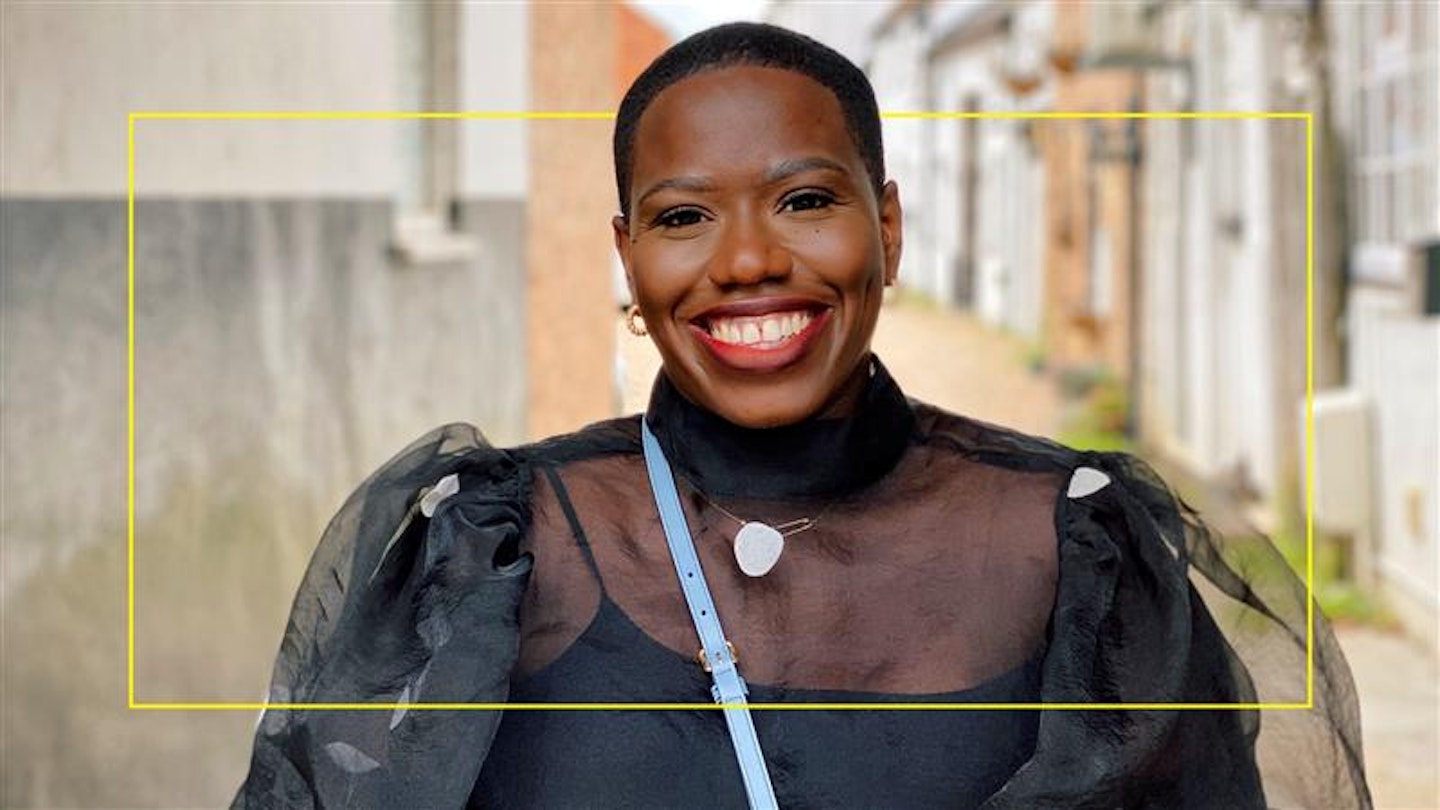As someone who has rocked a shaved head for the last 17 years, people are often surprised to hear my many (usually heated) opinions about hair. But that’s because I’m a Black woman. And even though I’ve found a hairstyle which is to myself and my brand what a sharp bob is to Anna Wintour, almost two decades of security cannot erase the uphill battle to not only style my hair, but love it.
I can’t lie; most of the issues were external. Born and raised in Brixton, south London, while I wasn’t short on options of places to buy the things I thought my hair needed (like relaxer) I was still unable to see Black hair sold as the norm. It was so far from the norm, in fact, that the hair shops I frequented weren’t places like Boots or Superdrug, but back street battle grounds, which would definitely overcharge you for your shampoo or conditioner because they knew full well the high street saw you and your kinky 4C Afroas an outlier. And it wasn’t just the shops pushing the products that knew it, hairdressers knew it too.
You see, I couldn’t just walk into any hairdressers and expect them to know how to deal with my hair. I would have to hunt down West African braiders or Jamaican weave magicians who knew and understood the nuances that came with styling Afro hair. While I haven’t had this experience myself, there have been many stories of Black women who have gone to salons only to be met with hostility, a huge mark-up because our hair is ‘hard to manage’ or a flat-out refusal to tend their hair at all as no one on the premises was trained in how to style Afro hair.
Last week, the British Beauty Council announced that ‘Afro and textured hair has now been included into one cutting and styling practice standard for all hair types in the recent review of the National Occupational Standards (NOS) for hairdressing.’ The news went on to say, ‘Many current qualifications have no compulsory requirement for students studying hairdressing to be educated on cutting and styling Afro and textured hair.
This leaves a significant gap in professional knowledge and hairdressing services, leaving this demographic largely uncatered for.'
Recently, I was scrolling through TikTok and came across a white hairdresser based in Manchester who was doing a keratin treatment on a Black woman with 4C hair. I watched mesmerised as this woman didn’t miss a beat in caring for this woman’s hair in a way I had never seen outside of a Black hairdressers. Coming to the end of the video, she stated that she was a hairdresser who believed that everyone in the industry should be trained on how to work on all hair types – not just those that have been sold as the easiest – and I couldn’t agree more.
As ever with things rooted in discrimination, it’s always one step forward and two back, because in the same week the National Beauty Council released this statement the Olympics also faced backlash over not allowing swim caps designed for Afro hair to be worn as the water sports world governing body had said that ‘the hats aren’t suitable as they don’t follow the natural form of the head’. Only those who have been held back from the life skill of learning to swim because standard swimming caps wouldn’t cover their hair, which couldn’t be washed every day, would understand what a setback that is. And let’s not forget how many Black students have quite literally had to petition for the right to wear their hair as it grows out of their heads, as many schools in the UK have made it clear that Afro hair doesn’t fit within their uniform rules and regulations.
Admittedly, for a long time all of the above wasn’t a concern for me. I lived in the comfortable bubble of convenience and quickness that comes with rocking a shaved head. But now I have a 7-year-old daughter who, in less than a decade of being alive, has sported locs, an Afro, braids and canerows. In her next school year swimming becomes part of her curriculum and I couldn’t imagine looking at her and saying that she should not take part or compete because dealing with her hair is a bigger issue. The true issue is the way Black hair is policed, ostracised and made to appear as something that is inherently wrong. Will this new standard for hairdressing now make the change that people who look like me really need to see? Only time will tell. But in the meantime, I’ll stick with those who have loved my hair from the very beginning.
READ MORE: Candice Brathwaite: 'One Guilty Verdict Cannot Make Up For A World Of Injustice'
READ MORE: How to Care for Afro Hair: Everything I Learned About My Natural Hair During Lockdown
